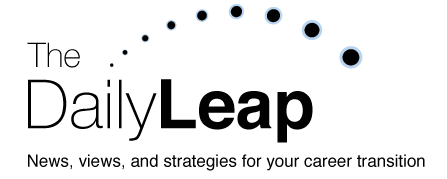I was introduced to
The Shark and the Goldfish by my boss. He tacked a post-it to its cover that said “I think this will change your perspective on things” and left it on my desk.
My first impression wasn’t positive. The story is illustrated, so it reminded me of a children’s book. The opening statement--Are you a shark or a goldfish?--made me wonder what the heck my boss was trying to tell me. Was he suggesting that I needed to be more of a man? I didn’t get it. I skimmed the book’s contents within five minutes, decided the story was too hokey for my tastes, and dismissed it as unimportant.
Sometime later, a coworker recognized the book in my cubicle and asked me about it. After explaining why I didn’t really read it, my coworker agreed that although the story was corny, the
message is what really mattered. He suggested I try reading it again, saying “Make sure you read the introduction this time.”
After reading
The Shark and the Goldfish front to back, I’m happy to report that I get it now. The author Jon Gordon starts off with a confession saying that of course a goldfish, a freshwater fish, cannot survive in the ocean. Gordon goes on to explain that his “Shark or Goldfish?” concept started out as a story he liked using in motivational speeches. The story is intentionally short so he can communicate his point quickly. Consequently,
The Shark and the Goldfish is more of a quick-and-dirty tool than a magnum opus:
A goldfish is alone is his bowl, perfectly content with being fed each day. During a trip to the beach he is accidentally swept away into the ocean, where he starts to go hungry. He fears that he is done for, until he meets a friendly shark who challenges his thinking.
The message shines through in this bit of dialogue between the shark and his newfound friend: “You know what your problem is?” “I’m starving and no one will feed me.” “No, you are waiting to be fed.”
The focus of the story revolves around one important truth:
You can’t control the events in your life. You can, however, choose how you respond to them.
This truism is the motivation that the shark uses to teach the goldfish how to “be a shark.” In order to be a successful shark, the goldfish will need to work hard for his food. Furthermore, it’s not a “once in a while” type of work -- it’s a mindset that reinforces the need to work hard every day.
It is a lesson that translates well into dealing with adversity. If you’re unemployed, you can’t wait for jobs to come knocking at your door – you must actively search for jobs and beat out the competition to a job offer. If you’re working in a dead-end job, you can’t wait for something better to land in your lap – you must actively seek out new opportunities. If you’re anxious to get a raise or a promotion, you can’t wait for someone to notice you – you must take on extra projects, leverage your contacts, and do other proactive tasks that will help get you get noticed.
Though the main focus of
The Shark and the Goldfish is about turning misfortune into fortune by seeing opportunity in the midst of adversity, there are other lessons to be learned from the story. The book highlights these different lessons that the goldfish learns through illustration: Whenever the goldfish learns something, he’ll inscribe a reminder into different rocks or pieces of coral throughout the ocean. The reminder that resonated most with me is the importance of faith over fear.
Faith and fear are similar because both are beliefs of a future that hasn’t happened yet. Fear is the belief in a negative future, while faith is a belief in a positive one. Fear is most common, because of the multiple forms it comes in. There is fear of the unknown, fear of failure, fear of starving, fear of change, and even fear of fear. Because fear can be so paralyzing, it’s no wonder that so many people will settle for their small goldfish-bowl world. We are content, so long as we’re being fed.
As a result, we forget about our options for a different future. We lose sight of our own potential because our faith in a positive future is drowned out by all of the fears we carry.
In
The Shark and the Goldfish, the goldfish successfully overcomes his fears. In the face of adversity, he chooses to be proactive. Despite negativity from naysayers, he proves himself to be a shark capable of finding more food than he’d ever need. He decides to create a school for fish that once thought like himself, and teaches what it takes to be a shark like him.
At about 80 pages, many of which have less than 15 words on them due to illustrations,
The Shark and the Goldfish can be read in under an hour. Gordon admits that he’s received criticism regarding the length and simplicity of the book, and I almost dismissed its significance because of just how small it is.
In spite of my poor first impression, I am grateful that
The Shark and the Goldfish was recommended to me a second time, because I see now what my boss was getting at. When it comes to success, attitude is everything. With a proactive approach to life, you can handle everything that’s thrown at you, even if it’s as terrifying as the vastness of the ocean to a tiny goldfish. You realize that against all odds, you are still in control over yourself. As a result, you are in control of your life.
As Gordon puts it, the choice is yours. What do you want to be? A shark or a goldfish?
